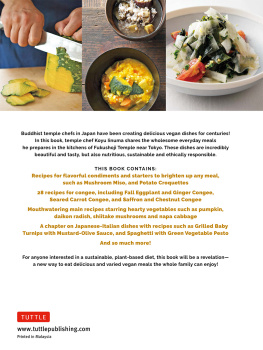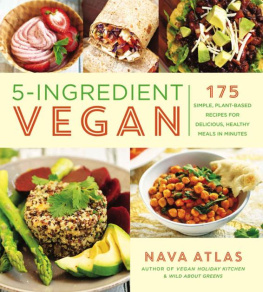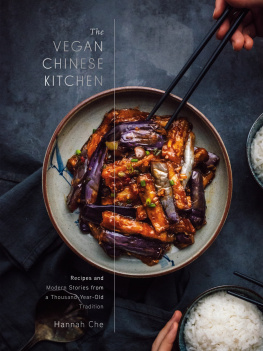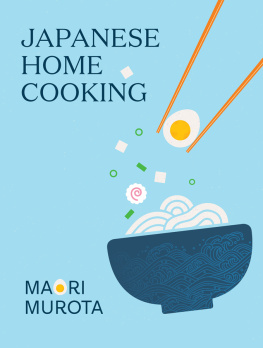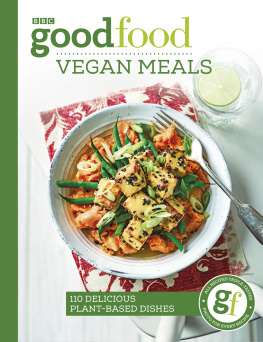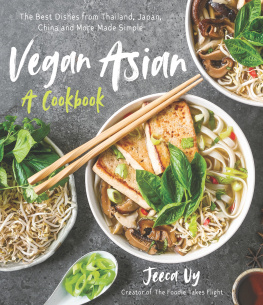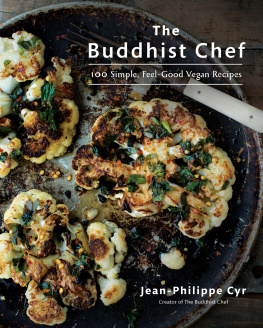Koyu Iinuma - Zen Vegan Food: Delicious Plant-based Recipes from a Zen Buddhist Monk
Here you can read online Koyu Iinuma - Zen Vegan Food: Delicious Plant-based Recipes from a Zen Buddhist Monk full text of the book (entire story) in english for free. Download pdf and epub, get meaning, cover and reviews about this ebook. year: 2021, publisher: Tuttle Publishing, genre: Home and family. Description of the work, (preface) as well as reviews are available. Best literature library LitArk.com created for fans of good reading and offers a wide selection of genres:
Romance novel
Science fiction
Adventure
Detective
Science
History
Home and family
Prose
Art
Politics
Computer
Non-fiction
Religion
Business
Children
Humor
Choose a favorite category and find really read worthwhile books. Enjoy immersion in the world of imagination, feel the emotions of the characters or learn something new for yourself, make an fascinating discovery.
- Book:Zen Vegan Food: Delicious Plant-based Recipes from a Zen Buddhist Monk
- Author:
- Publisher:Tuttle Publishing
- Genre:
- Year:2021
- Rating:3 / 5
- Favourites:Add to favourites
- Your mark:
Zen Vegan Food: Delicious Plant-based Recipes from a Zen Buddhist Monk: summary, description and annotation
We offer to read an annotation, description, summary or preface (depends on what the author of the book "Zen Vegan Food: Delicious Plant-based Recipes from a Zen Buddhist Monk" wrote himself). If you haven't found the necessary information about the book — write in the comments, we will try to find it.
- 28 recipes for vegan congeethe traditional Asian rice porridge dish that is taking the West by storm. These include Congee with Eggplant and Ginger, Soymilk Congee and Congee with Saffron and Chestnuts
- A chapter on Japanese-Italian dishes with recipes such as Grilled Turnips with Mustard and Olive Sauce, Spaghetti with Pesto and Shiitake and Mushroom Risotto with Nori Seaweed
- Delicious condiments and starters to brighten up any meal, such as Mushroom Miso Paste and Crunchy Kombu Chips
Koyu Iinuma: author's other books
Who wrote Zen Vegan Food: Delicious Plant-based Recipes from a Zen Buddhist Monk? Find out the surname, the name of the author of the book and a list of all author's works by series.

